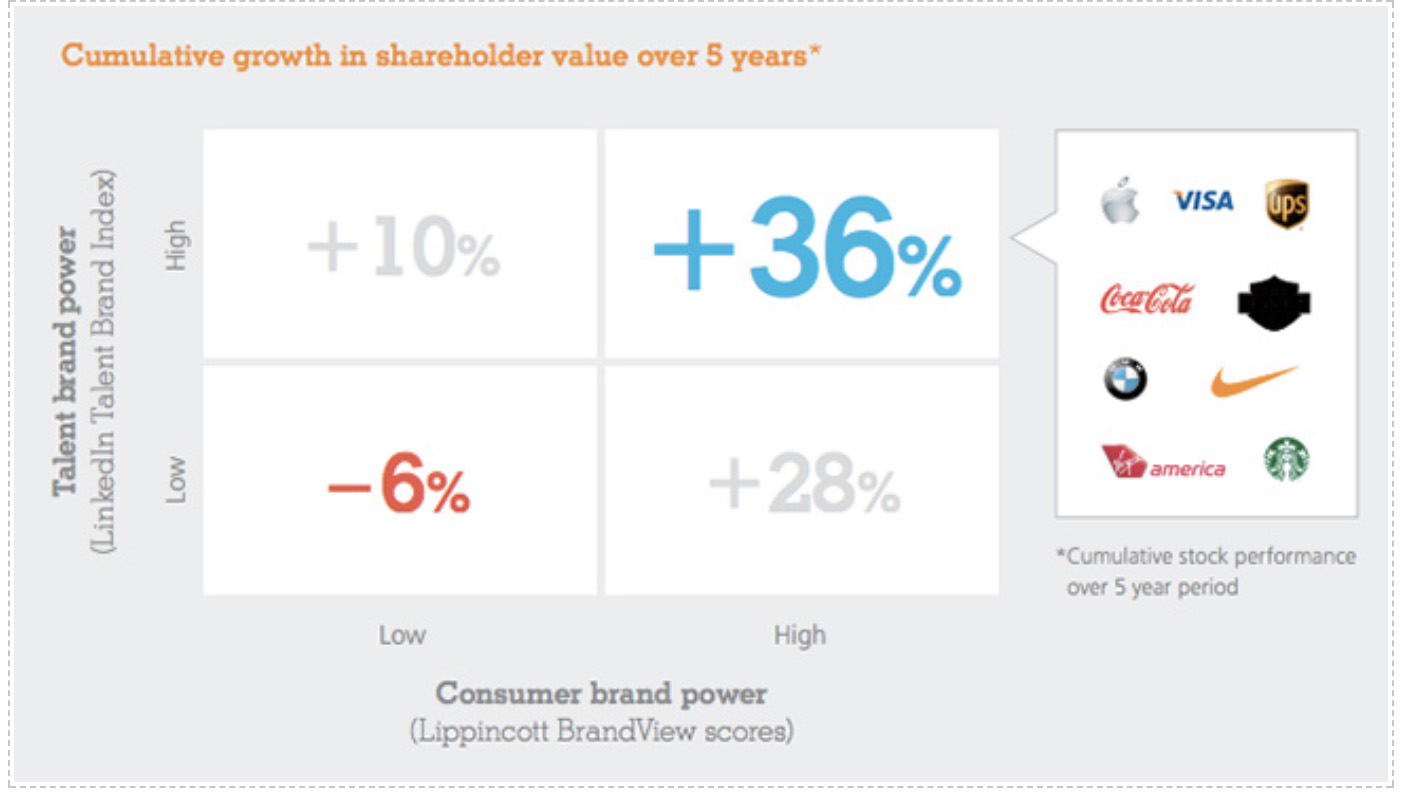
Is a strong consumer brand enough?
Dina buys Himalaya Neem Face Wash as she likes to have a clear skin while her mother prefers Dove to keep her skin soft. This is what brand does to your product. It helps create a perception in the mind of the customer which helps them make a purchase decision. Of course, this needs to be authentic to ensure customer loyalty towards the product.
We are aware of and agree on the importance of having a strong consumer brand to sell a company’s products and services effectively. A good brand is what differentiates their product from others in the market, and brings in more credibility amongst the customers.
Many people debate that they would not need to invest in building an Employer Brand if they have a good consumer brand. While a strong consumer brand may help attract talent, is it good enough to engage and retain them as well? You may like Mars chocolate more than Cadbury’s Dairy Milk, but do you confidently know which of them is a better employer in terms of culture, values, focus on learning and development, compensation, technology, etc? There is a strong need for employers to start applying well-developed product branding principles to the employee experience. Employer Brand is defined as the attributes and values that are associated with a company as a place to work – which explains why every company should have one.
According to a research done by Harvard Business Review, a poor reputation costs companies at least 10 percent more per hire.
In recent years, there’s been an increasing effort to more closely align employer and consumer branding because there is a huge overlap between the two groups even if the target for employer brand would be a subset for the target for a consumer brand.
Engagement with your consumer brand is transactional and may be short term. Typically, people buy a product and move on. However, your employer brand engagement must be a long-term approach and must not just entail strategy to attract talent but also engage and make them stick around.
Even the current customer mindset is changing. Just having a good consumer brand isn’t enough. As a customer, I also like to know if by using the product, I am helping contribute towards the society, if the workers who are manufacturing my product in the factory are treated well if the company’s values are what I would like to associate myself with.
Joint research from LinkedIn and Lippincott found that companies with both strong consumer and employer brands financially outperform their peers – they had the highest growth in shareholder value over a five-year period.

Source: https://bit.ly/2KOHvxW
This is where the need to make both marketing and HR responsible for your Employer Brand arises. Focus on the talent acquisition objectives, assess where the current talent brand stands, build an EVP and then communicate a synchronized and honest message to your current and potential employees.


